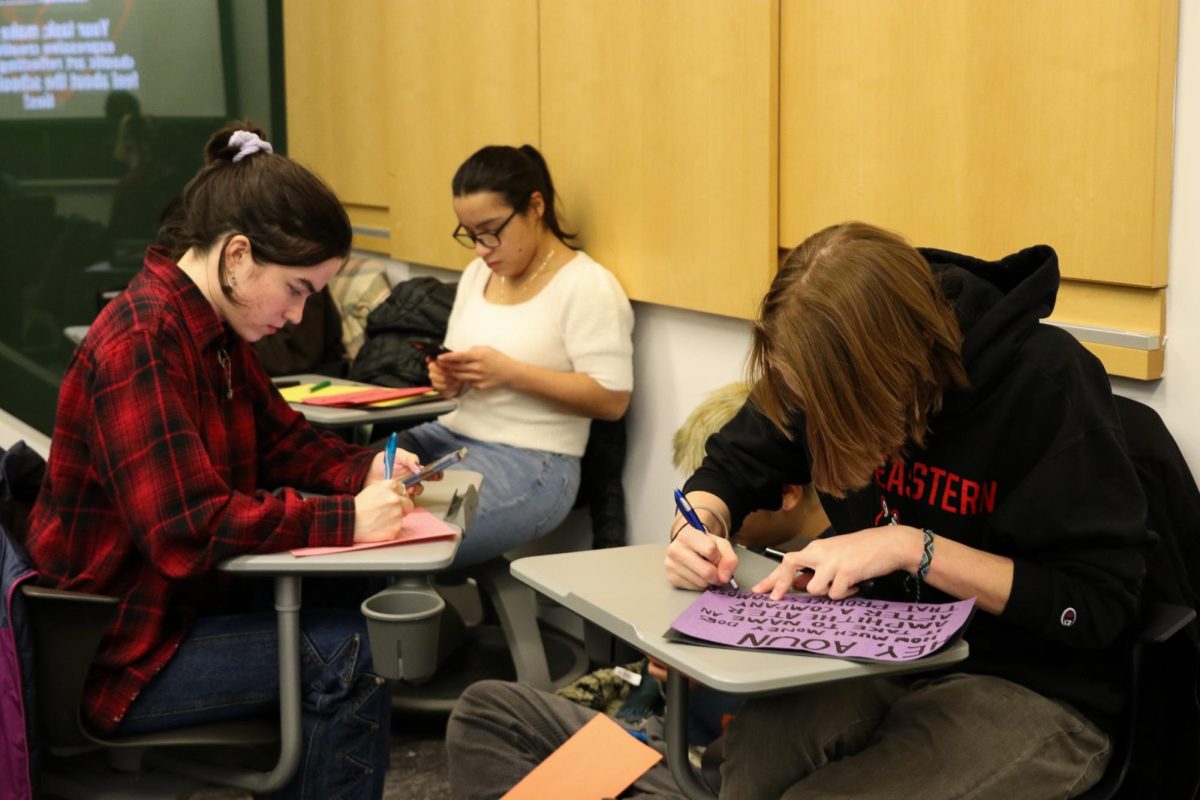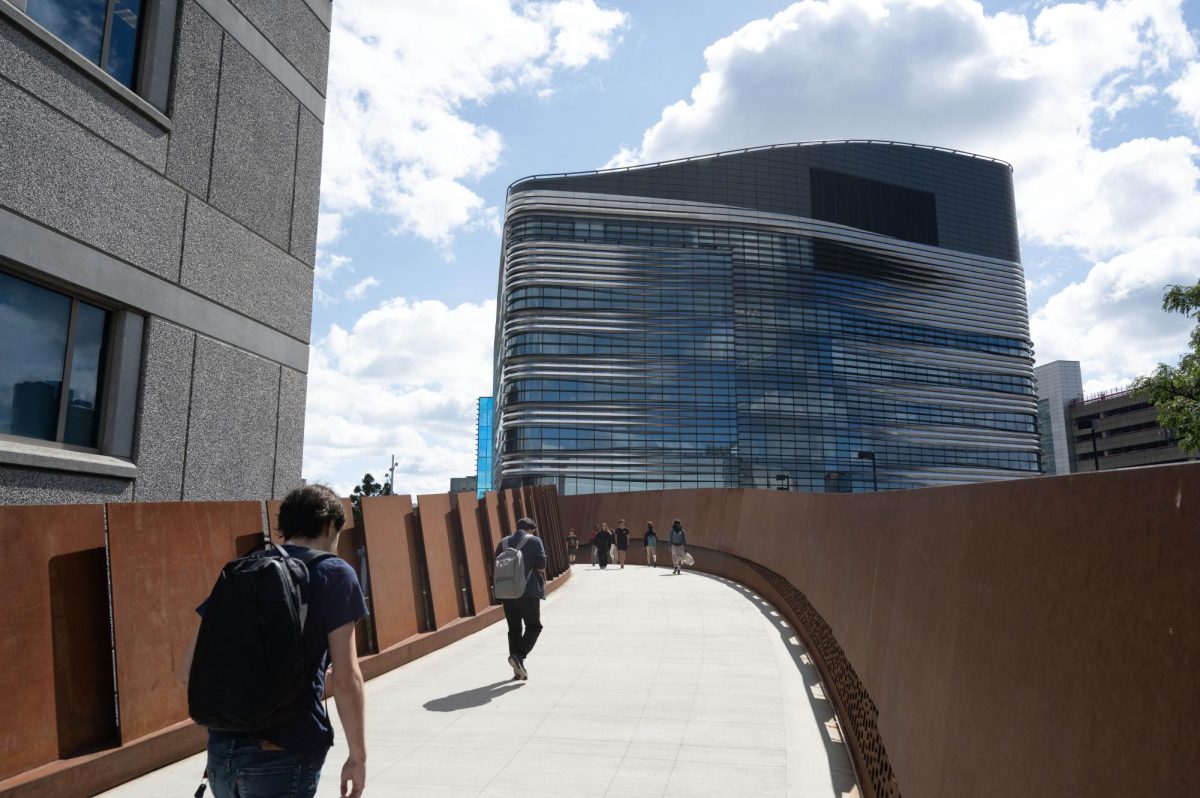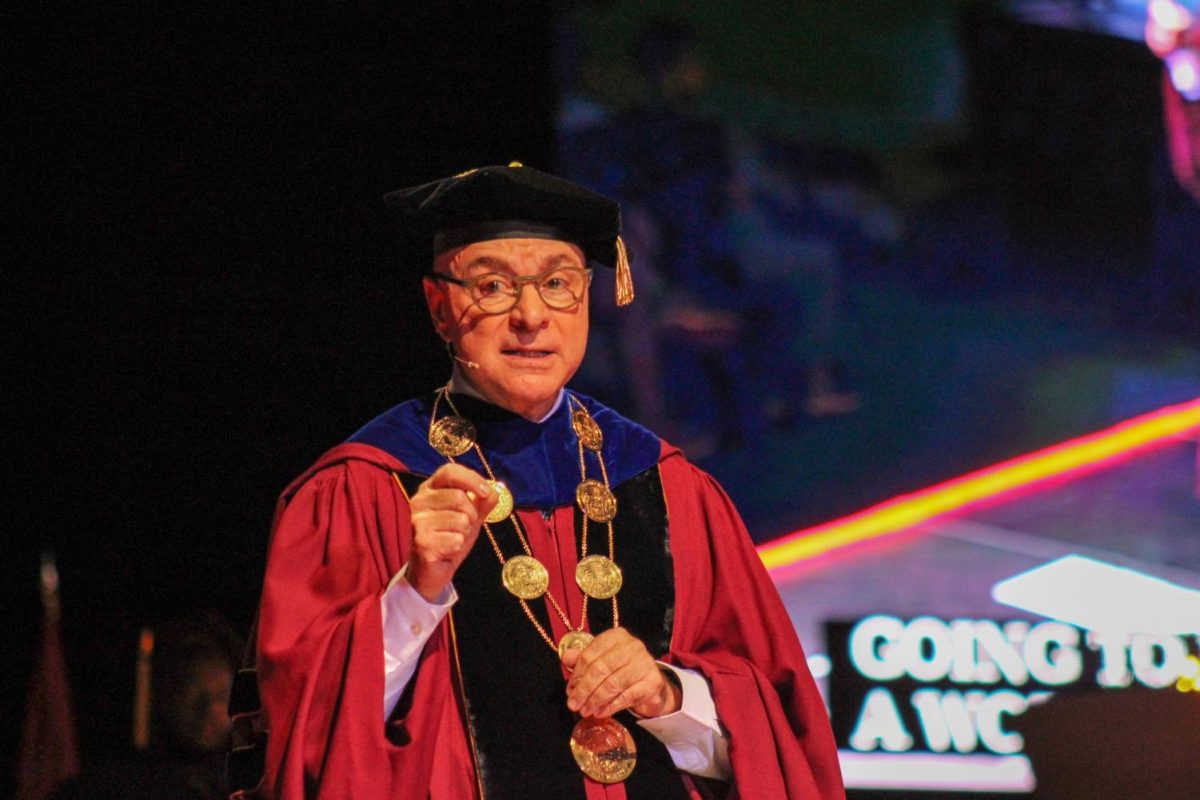Environmental activism group Sunrise Northeastern gathered Feb. 20 to write Valentine’s Day-themed letters opposing the university’s investments in military-industrial companies.
The event, dubbed “Break-Up with the Military-Industrial Complex,” generated more than 40 letters addressed to President Joseph E. Aoun that implored the university to divest from companies that produce military weapons.
Every month, Sunrise Northeastern picks a particular issue to focus on, said Cassidy Chang, a fourth-year environmental studies major and co-hub coordinator for Sunrise Northeastern. This month’s issue is the military-industrial complex, inspired by the Boston College Sunrise chapter’s “break up” campaigns, Chang said.
For years, student organizations have raised awareness and demanded the university divest from military-industrial companies. And in March 2023, Northeastern’s Student Government Association passed a resolution calling for Northeastern to discontinue its collaboration with private military companies.
The campaign’s goal is to continue pushing Northeastern to divest its endowment from companies supporting the military-industrial complex and to provide “people the space to be creative with their frustrations and their anger,” she said.

“A lot of times with international conflicts like this, there isn’t a lot you can do, and you feel really powerless and helpless,” Chang said. “When you’re in this space, and there’s a good vibe and the people around you are all sharing the same motivations … it feels really powerful.”
This month’s campaign comes at a tumultuous time for advocates of divestment. In an FAQ post last updated Feb. 14 on the school-run media outlet Northeastern Global News, or NGN, the university indicated it would reject student demands to cut ties with companies that do business with the Israeli military.
In the context of businesses doing business with the Israeli military, Northeastern said its “endowment is invested to maximize opportunities for advancing the university’s educational and research mission” and that it should “not be seen as an instrument to serve specific political agendas or weigh in on matters upon which reasonable people can disagree.”
Northeastern invests its endowment primarily in commingled funds, or a collection of assets; this means it does not hold “direct investments” in any companies, according to the FAQ post.
Chang said that once NGN published the FAQ, Sunrise’s outlook on their February campaign “definitely changed.”
“I think a lot of this event was just supposed to be get together, kind of relaxed, connect with each other, have a little bit of fun, make some like snarky poems towards the university,” Chang said. “But then, after this FAQ came out, we realized that we had a pivot towards the more serious understanding of the topic, with that being more like [an] actual conversation around the actual destructive ways that this was happening.”
The initial “Break Up With the Military-Industrial Complex” event was postponed due to the school’s announcement of a snow day Feb. 13, so the event took place after the FAQ was published, which was a “coincidence,” Chang said.
Jonathan Bacdayan, a fourth-year environmental studies major and organizer with DivestNU, a campus group that advocates for the university to “remove all fossil fuel investments from its endowment,” said the FAQ speaks to tensions between the university and activist groups.
“The administration doesn’t really acknowledge most of the activism that happens,” Bacdayan said. “They only really come down with the hammer when they feel they need to. … That’s why we continue to try to work on generating more pressure. … There is certainly not a working relationship on an ongoing basis between activist groups and the administration.”

Despite the frustration, Chang said Sunrise will continue its campaigns, especially those focusing on the overlap between environmental activism and human rights.
“The intersectionality of environmental issues is so important to Sunrise,” Chang said. “I want to make sure that when people come [to Sunrise], they know that all of these issues are affecting each other.”
The group is motivated now more than ever to be heard, said Lucas Good, a third-year environmental studies major and Sunrise co-hub coordinator. Good said he rejects the university’s statement that “the endowment should not be seen as an instrument to serve specific political agendas or weigh in on matters upon which reasonable people can disagree.”
“Breaking down the intentions behind this event in terms of calling the university to divest from the military-industrial complex is necessary and any claim that they might make around an apolitical tool of their endowment, I think, is nonsense,” Good said. “There’s nothing apolitical about $1.5 billion.”















